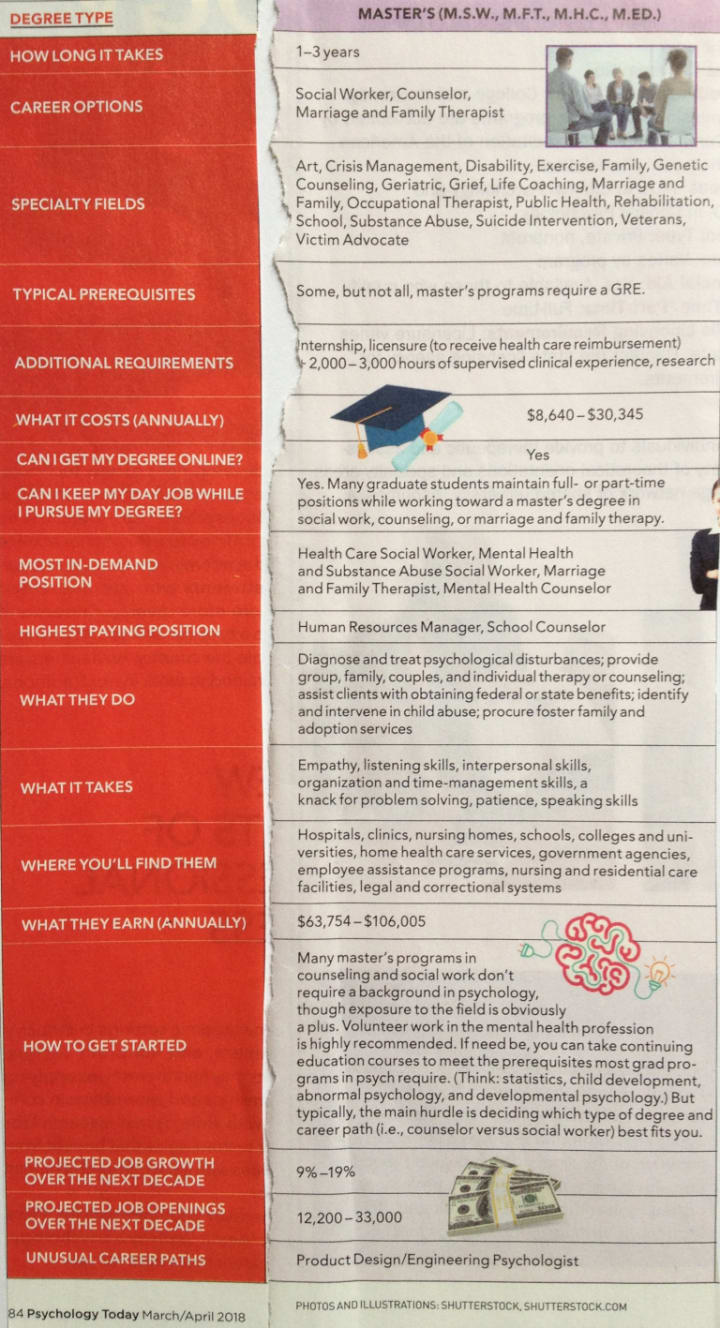What is Positive Psychology
plus CAREERS IN PSYCHOLOGY

Positive Psychology is a form of therapy developed by Nossrat Peseschkian in Germany in 1968. The author discovered that using stories and fairy-tales as well as examples of other cultures, the patient is more prone to becoming capable of broadening his perspectives over his own problems, issues and conflicts and he can look at himself as well as to others from different angles, enabling the patient to treat his conflicting thoughts, ideas and situations.
Dr. Peseschkian is responsible for the idea which states that if there are certain diseases and conflicts within a family and they are transmitted within the family (persons/society) then the family itself (person/society) has the capacity to cope with that specific problem or conflict. In other words, the patient can become his own therapist.
Positive Psychology is based on a positive image of the human being, which pinpoints the fact that the human being was gifted with 4 types of capacities: physical, mental (psychological), social and spiritual. All diseases and all disorders are being interpreted in a new, more positive way, by using in its interpretation stories, quotes, fairy tales and examples from other cultures.
The patient is being encouraged to play an active role in his own healing. Positive psychology believes that the human being is a whole made up of 4 parts: body, mind, emotions and spirit. The therapeutic process purpose is to help the client/patient to develop his innate capacities to find his balance in the daily activities. The patient is being encouraged to become a therapist for his family and for his closest ones in the sense that if he understands himself, he is able and better equipped to help his close ones, either by guiding them or sharing his experiences. Positive psychology uses methods from other disciplines too in order to make the patient’s adjustments processes to flow.
Positive psychology / therapy must be distinguished from the positive psychology practised by Dr Martin Seligman, whose books and insights into the field of psychology is very profound too, however different.
“Definition of ‘Positive’
According to Martin Seligman and his positive psychotherapy / positive psychological interventions, “positive” denotes a constructive initiative in intention or attitude, showing optimism and confidence, a good affirmative, or constructive quality or attributes. Here the word “positive” focuses on the resource side: well-being; strengths and virtues; etc. that enable individuals, communities and organisations to thrive.
Whereas, Positive Psychotherapy (according to the definitions of Nossrat Peseschkian) defines “positive” in an etymological way. “Positive” from its Latin meaning comes from “positum” – the things set in front of you in terms of the factual thing, the ‘whole’ thing. Here, it means the combination of good and bad things, strengthening and weakening aspects, etc. Therefore, “positive” here does not focus exclusively on the resource side: the resource side just completes the picture.
Psycho-therapeutic interventions keep in mind both aspects: problem solving; and also, sources of strength, coping and well-being. The ‘holistic’ meaning of “positive” contains: positive in concept of men; positive in believing in undeveloped capabilities; positive in functions and meaning of the symptoms; and positive in solution-orientated processes”
You can read more about the history of positive psychotherapy and positive psychology approaches in this document.
CAREERS IN PSYCHOLOGY
I am writing about this because I am exploring my options with my degree in Psychology. When I applied to study Psychology, I did so believing I will end up working in my own private practice and doing therapy, mostly as seen on TV. However, the demands and requirements to actually achieve that status have forced me to surrender way too soon and after years of not finding my place in the field due primarily to my lack of interest in researching more my options, I have ended up working in a call centre and stopping fraudsters defraud the customers.
I am still working within my field of operation as I have a Master’s Degree in Knowing and Combating Crime within Psychology and it is fun when you catch them and you are able to save the customer the hassle. But, it is still a call centre. As much as some people would say that you would learn far more from that experience in terms of human behaviour than from any other random undergraduate job, I can really say, I had enough of what I learned from that particular human behaviour. It’s time to upgrade my game. That’s why I writing this post. Mostly to myself, motivating that strong desire in me to take the leap. Or at least to plant the seeds of it. I think I am ready now to hit the walls. Maybe it’s just the age or maybe it’s just my calling, no matter how arrogant that may seem to you, my dear reader. You, too, will reach this point in your life, when you will know rightly that your time has come. Not to shine. But to enjoy your work.
Nowadays, there are myriad ways to apply your knowledge of psychology. The only problem is, everywhere a little tiny huge experience is required. I would not say that I lack the experience at this stage, because, the truth of the matter is, 10 years of work and study have build me an experience, yes, probably more in the empirical side of psychology, but when you have studied Psychology, that’s more than just empirical, in my opinion, as everything that happens to you becomes extremely easy to digest in terms what that is called, why is happening, how you should cope and what are the lessons out of that observation and lived experience.
So, yes, life experience, if that’s what you want it to be named. But that’s psychological life experience, because every single graduate of Psychology will relate to the world in a different, far better way than someone who did not study the field, plus, they can understand better not just themselves, but their peers and family and friends, maybe even sharing a bit of that knowledge to help them too, if they are open to receiving it. So, that experience collated with my love of twisting words and phrases and minds, surely should catapult me to new heights in terms of dream jobs, right? Well, I will need to explore it to actually come up with an answer. But first, let’s dive into the roads of each possibility within the psychology field of operation to actually obtain a career in psychology.

Pictures containing the information comes from the Psychology Today Issue April 2018 and I think they portray greatly and concisely what you need to do to get to work in your psychology study, and I speak to myself too.
There are 4 degree types – medical, doctorate, master and bachelor. Each of that bring upon a different career option, a speciality field, requirements and how it can be achieved. So let’s start with the basic one, bachelor’s degree.
Bachelor’s degree in Psychology

Master’s Degree in Psychology

Medical Degree in Psychology

Doctorate Degree in Psychology

Maybe you want to set up your own practice but have no clue how to start? Well, I found this link helpful. Maybe you will, too.

All of the above sounds really nice and clear to follow. When you have a map to where you want to go, is very easy to achieve that. Just make sure to not loose yourself on the way to your destination, as I did, inspired by Red Riding Hood. Be more of a wolf persevering in catching its sheep. The sheep is the position you seek. Don’t let it slip through your fingers. A wolf is courageous and it changes its fur to adapt to the seasons, but it’s always with its eyes and mind on the ball. Make sure to stick to your vocation. Even if it finds you later in life, or after years of hassle, like in my experience, your love of psychology will transpire in your work and it will make a difference to your life. Just like in this beautiful story here. Ignite your fire and chase your precious dreams.
AND IF YOU ARE STILL NOT DECIDED, HERE’S WHAT PSYCHOLOGY STUDY DID TO ME, READ HERE, 10 THINGS THAT HAPPEN WHEN YOU STUDY PSYCHOLOGY AND HERE, FACTS I LEARNED DURING UNI TO GUIDE MY LIFE UPON. ENJOY THE EXPERIENCE!
About the Creator
Annaelle Artsy
Me, myself & I
Slow living in the reading






Comments
There are no comments for this story
Be the first to respond and start the conversation.